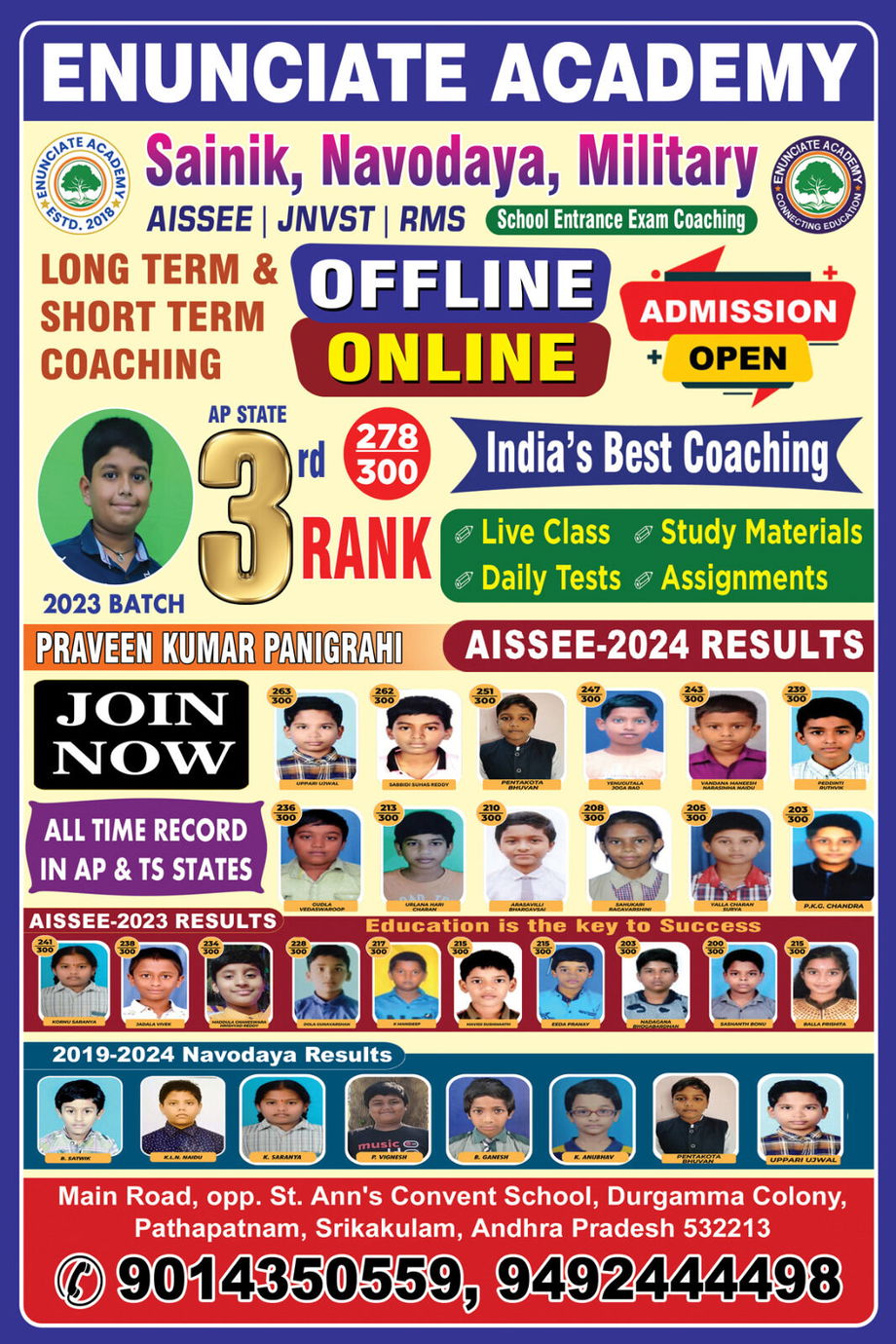The Sainik School Entrance Exam, also known as the All India Sainik Schools Entrance Examination (AISSEE), is a critical step for students aspiring to join one of India's prestigious Sainik Schools. These schools are renowned for their focus on discipline, physical fitness, and academic excellence, preparing students for a career in the armed forces. Preparing for the AISSEE requires a strategic approach, combining rigorous study, consistent practice, and a focus on physical fitness. Here’s a comprehensive guide to help you prepare effectively.
Understanding the Exam Structure
Before diving into preparation, it is essential to understand the structure and syllabus of the AISSEE.
-
Exam Pattern for Class VI:
- Mathematics: 150 marks
- Intelligence: 50 marks
- Language: 50 marks (either English or the regional language)
- General Knowledge: 50 marks
-
Exam Pattern for Class IX:
- Mathematics: 200 marks
- Intelligence: 50 marks
- English: 50 marks
- General Science: 50 marks
- Social Studies: 50 marks
The exam consists of multiple-choice questions (MCQs) and is designed to test the candidate's knowledge, reasoning abilities, and language skills.
Step-by-Step Preparation Guide
-
Create a Study Plan:
- Set Clear Goals: Define what you need to achieve each week leading up to the exam.
- Daily Schedule: Allocate specific hours for each subject daily, ensuring a balanced approach.
- Breaks and Rest: Include short breaks to avoid burnout and ensure you stay fresh and motivated.
-
Gather Study Materials:
- Textbooks: Use NCERT textbooks for a solid understanding of concepts, especially for Mathematics and Science.
- Reference Books: Use additional reference books and guides specifically designed for AISSEE.
- Previous Year Papers: Collect and solve past years’ question papers to understand the exam pattern and difficulty level.
-
Focus on Key Subjects:
- Mathematics:
- Master the basics and fundamental concepts.
- Practice arithmetic, geometry, and algebra regularly.
- Solve as many problems as possible to improve speed and accuracy.
- Intelligence:
- Work on logical reasoning and analytical skills.
- Solve puzzles, riddles, and practice mental ability questions.
- Language:
- Improve your vocabulary, grammar, and comprehension skills.
- Practice reading passages and answering related questions.
- Write essays and letters to enhance writing skills.
- General Knowledge:
- Stay updated with current affairs and general knowledge topics.
- Read newspapers, magazines, and GK books regularly.
- Science and Social Studies (for Class IX):
- Focus on key concepts in Physics, Chemistry, Biology, History, Geography, and Civics.
- Make notes of important points and revise them regularly.
- Mathematics:
-
Regular Assessments:
- Mock Tests: Take mock tests to simulate the exam environment and improve time management.
- Self-Assessment: Regularly assess your performance to identify strengths and weaknesses.
- Review Mistakes: Analyze errors made in practice tests and work on those areas to avoid repeating them.
-
Time Management:
- Practice solving questions within a set time limit.
- Learn to allocate appropriate time to each section during the exam.
-
Physical Fitness:
- Physical fitness is crucial for the medical examination part of the selection process.
- Engage in regular physical activities like running, cycling, and sports to stay fit.
- Follow a healthy diet and get adequate sleep.
-
Mental Preparation:
- Stay positive and motivated throughout your preparation.
- Practice meditation or relaxation techniques to manage stress.
Additional Tips
- Seek Guidance: Join coaching classes if needed or seek help from teachers and mentors.
- Group Study: Studying in groups can help in sharing knowledge and solving doubts.
- Stay Consistent: Consistency is key; study regularly and avoid last-minute cramming.
Useful Resources
- NCERT Textbooks: Foundational books for all subjects.
- Reference Guides: Books like Arihant’s “Sainik School Entrance Exam” guide.
- Online Resources: Websites and apps offering practice tests and study materials.
- Coaching Centers: Institutions providing specialized coaching for AISSEE.
Preparing for the Sainik School Entrance Exam requires a balanced approach, combining academic preparation with physical fitness and mental resilience. By following a structured study plan, using the right resources, and staying consistent, students can significantly enhance their chances of success. Remember, the journey to joining a Sainik School is as much about developing discipline and dedication as it is about mastering academic concepts.


